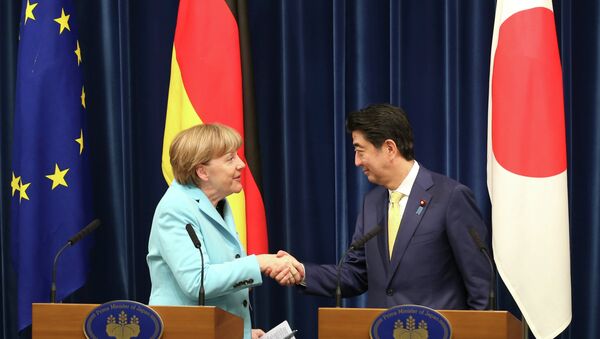"Trump is a shock, because the United States has always been the global leader of free trade since World War II and the number one target for German exports. To become economically less dependent on the US, Europe wants to cooperate more closely with Asian countries," Sueddeutsche Zeitung newspaper wrote.
The researchers sketched two scenarios for an agreement between the EU and Japan: classic and ambitious versions. A classic agreement, which provides for the withdrawal of trade barriers between the countries, will have a tangible, though still quite limited effect. As a result of such agreement, the productivity of the EU economy might grow by 11 billion euros per year, with one-third of the growth accounting for Germany.
In 2011, a similar classical trade agreement was signed by the European Union with South Korea. Since then, the exports to the Asian country have grown by one-third.
Much larger economic growth, however, could be reached if Japan and the EU sign a more ambitious deal that would not only lower trade barriers, but also remove other obstacles to trade. For example, it could ensure that European firms have access to Japanese state orders, while professional qualifications and standards for food products are mutually recognized.
"If the deal is signed, the economic benefits will be much greater than under a classical agreement. Germany would receive an additional 20 billion euros more per year due to the growth in its economic productivity. This amount is six times more than in the case of a classical agreement. This corresponds to 0.7% of the total GDP of the country," the article said.
In any case, the protectionist policy of Donald Trump gave a new impetus to these negotiations, the newspaper noted.
"For Japan, Trump's decision to withdraw from TPP trade agreement was a heavy defeat," the article said.
United States President Donald Trump signed an executive order to withdraw the US from the Trans-Pacific Partnership (TPP) free trade deal a few days after his inauguration. Intensively promoted by the administration of Barack Obama, the agreement was labelled by Trump as bad and dangerous for the American labor market.



